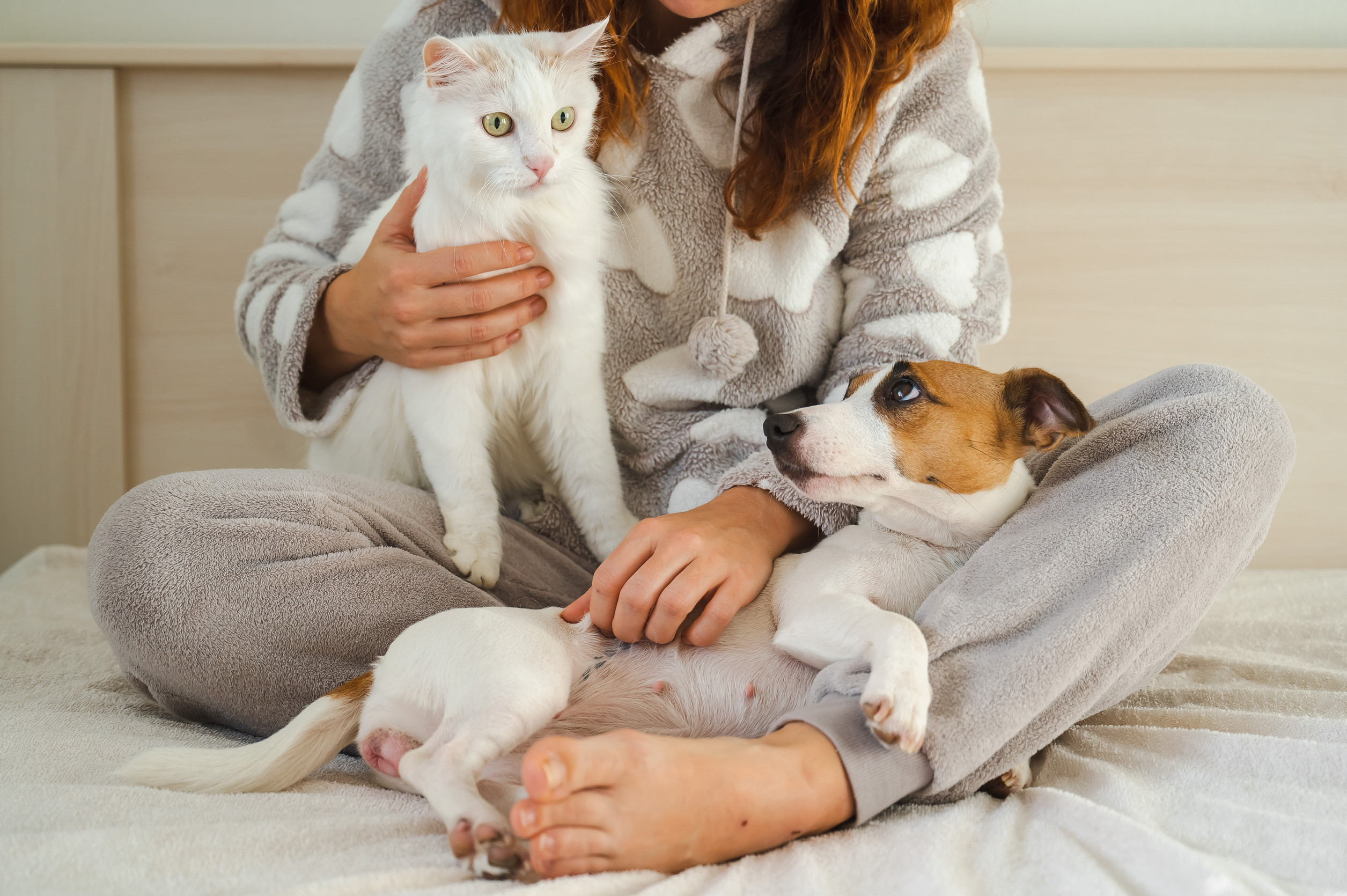
We all want to keep our pets happy and healthy, which is why many of us choose products labeled “pet-safe.” But here’s the problem: that label doesn’t always mean what you think it does. In fact, more veterinarians are now speaking out about certain pet-safe products that could be harming your furry family members without you even realizing it. From cleaning sprays to toys and even certain foods, misleading marketing can give pet owners a false sense of security. If you love your pet like family, it’s time to double-check what’s really in your home.
1. Essential Oil Diffusers
Many essential oils are advertised as natural and safe—but that doesn’t make them harmless to pets. Oils like tea tree, eucalyptus, and citrus can be toxic to dogs and especially cats when inhaled. Even passive diffusion can cause symptoms like drooling, vomiting, or respiratory distress. What’s worse is that some products claim to be “pet-safe” because they’re diluted, but vets say even small amounts can trigger reactions. Always consult your veterinarian before diffusing oils around your pets.
2. Pet-Safe Cleaning Sprays
Just because a cleaning spray is labeled as “pet-friendly” doesn’t mean it’s risk-free. Some contain hidden ingredients like alcohols or ammonia derivatives that can irritate your pet’s paws or respiratory system. Even residue left behind on floors or surfaces can be transferred to your pet during grooming. Vets recommend using truly non-toxic alternatives like diluted vinegar or checking for EPA-approved pet-safe certifications. When it comes to pet-safe products, always read past the front label.
3. Plastic Chew Toys
Many chew toys marketed for dogs are made from inexpensive plastics or vinyl that contain potentially harmful chemicals like phthalates or BPA. While the toy might not be immediately dangerous, constant chewing and ingestion of plastic particles over time can pose health risks. Some toys also splinter or break apart, becoming choking hazards. A truly pet-safe product should be durable, non-toxic, and appropriate for your dog’s size and chewing style. When in doubt, opt for rubber toys from reputable brands.
4. Flea and Tick Collars
Flea collars are a common go-to for pest control, but some contain high concentrations of pesticides that can be absorbed through the skin. While labeled “safe” for pets, recent studies have linked certain collars to neurological issues, skin irritation, and even seizures in sensitive animals. Vets now recommend prescription-grade treatments or natural alternatives with proven safety records. Just because it’s over-the-counter doesn’t make it harmless.
5. Automatic Air Fresheners
That plug-in or automatic spray might smell great to you, but it could be wreaking havoc on your pet’s health. Many air fresheners contain volatile organic compounds (VOCs) and synthetic fragrances that can irritate your pet’s lungs. Cats, in particular, are very sensitive to airborne chemicals due to their grooming habits and smaller respiratory systems. If a product says “pet-safe” because it avoids a few ingredients, that doesn’t mean it’s free of all harmful ones. Look for fragrance-free, VOC-free options—or skip them altogether.
6. Pet-Safe Ice Melts
Salt-based deicers labeled “pet-friendly” are often less harmful than traditional salts—but they’re not completely safe. Pets can still suffer from irritated paws or develop stomach issues if they lick it off their feet after a walk. Vets suggest wiping your pet’s paws after every outdoor trip during the winter months, regardless of which deicer is used. A truly pet-safe product in this case is one that minimizes exposure entirely. Booties or a pet-safe balm may offer better protection.
7. Natural Pet Treats
The word “natural” doesn’t always mean safe or healthy. Some natural treats, like rawhide or dehydrated animal parts (such as pig ears), can cause blockages, digestive issues, or bacterial infections. Even products labeled as pet-safe can be processed in unsanitary conditions or contain hidden additives. Vets encourage pet owners to look for treats that are vet-approved, easily digestible, and made in facilities with transparent safety standards. It’s not about fear—it’s about being informed.
8. Pet Toothpaste with Xylitol Alternatives
More pet toothpaste brands are boasting “natural sweeteners” to make brushing easier—but some of those sweeteners are toxic. Xylitol, even in small amounts, can be deadly to dogs. While most toothpaste made for pets avoid xylitol, not all alternatives are safe or properly labeled. Always double-check ingredients, and never substitute human toothpaste for pet use. Your pet’s dental health matters—but not at the risk of their overall health.
“Pet-Safe” Shouldn’t Mean “Don’t Read the Label”
Marketing can be misleading, especially when it comes to pet-safe products. Just because something is sold in a pet store or has friendly packaging doesn’t mean it’s automatically safe. Vets are urging pet owners to take a closer look, ask questions, and consult professionals before introducing new items into their pets’ lives. Your furry companion relies on you to be their advocate—so stay curious, cautious, and committed to keeping their world as safe as possible.
Have you ever used a product labeled “pet-safe” that turned out to be harmful? Share your experience—or your go-to safe alternatives—in the comments below!
Read More
7 Pet Foods That Were Banned in Multiple Countries
6 Pet Products Pulled Due to Contamination Risk
The post 8 “Pet-Safe” Products That Vets Now Warn Against appeared first on Grocery Coupon Guide.







